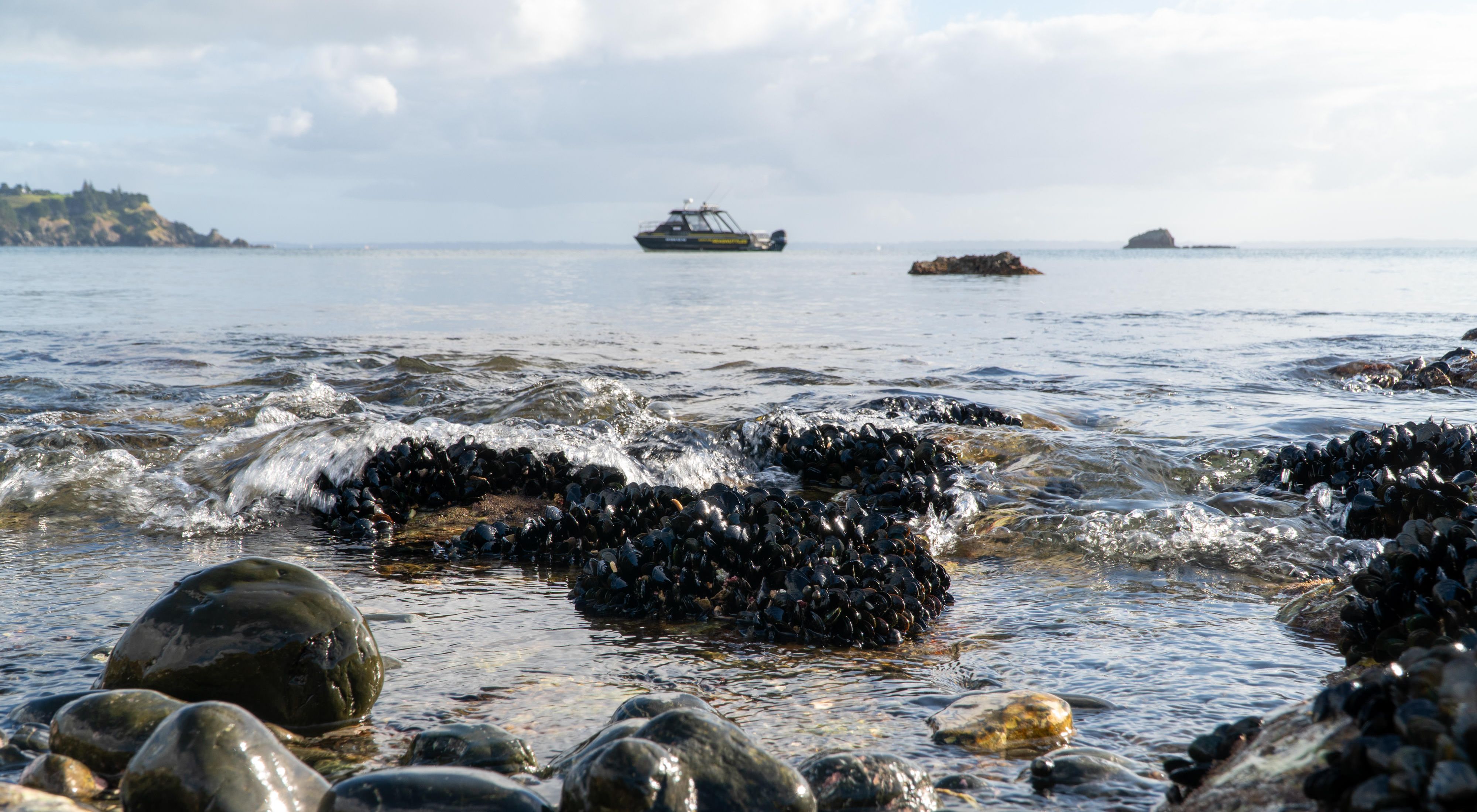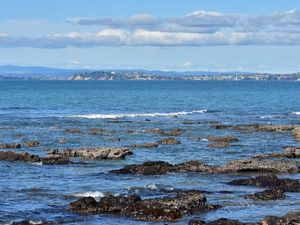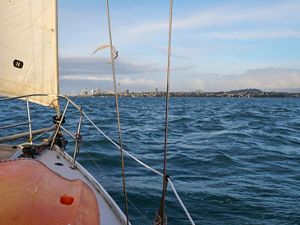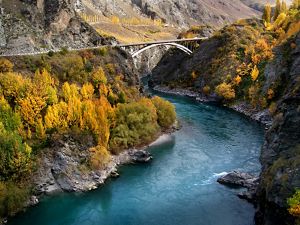In the cold waters off New Zealand’s North Island, a GoPro films fish. Silver shapes flit in and out of view, circling undulating kelp. Long rows of mussels, suspended on ropes, sway as they syphon seawater through their green-tinted shells.
Watching a mussel farm is usually about as interesting as watching paint dry. But this footage has scientists on the edge of their seats. Well, sort of.
In partnership with The Nature Conservancy (TNC), researchers in New Zealand and the United States are using everything from GoPros to kitchen sponges to study the ecological benefits of kelp aquaculture.

Aquaculture is the world’s fastest-growing form of food production. It’s a diverse and complex industry, where lax methods can lead to ecological harm. But when done well, it provides a tremendous opportunity for conservationists. A review by scientists at TNC and the University of Adelaide found that aquaculture can be used to restore lost ecosystem services. It can replace lost reefs, sequester carbon, and provide habitat for fish and other marine creatures.
Kelp farming in particular is poised for a boom. Producers are transforming seaweed into beauty products, pharmaceuticals, food, fertilizer, and even feed for livestock. As with most forms of food production, the ecological devil is in the details. To get a win-win for the environment and economy, you must farm the right species, in the right place, in the right way. And you need the science to back it up.
That’s where the GoPros come in.
“We're trying to understand more about the ecological role of kelp farms, how they affect fish and invertebrate populations, and do they have some cross-benefit with farming mussels in particular,” says Andrew Jeffs, a marine scientist at the University of Auckland.
Quote: Andrew Jeffs
Kelp forests fix a lot of carbon and nutrients and then make them available in organic form that drives the food chain in coastal ecosystems.
Since we’re not quite sure what those benefits might be — or how best to measure them — the methodology involves a lot of moving pieces: GoPro cameras to record fish species, numbers, and behavior. Tuffy sponges (the same brand you’d use in your kitchen sink) to record data on invertebrate creatures that fish like to eat. A sea-listening echosounder and eDNA collected from the water, also to track fish. And high-tech reef monitoring devices, called SMURFS, to sample fish larvae.
The researchers will gather data from the Hauraki Gulf and the Gulf of Maine in the United States. The goal is to establish a methodology, tested in two geographies, that can be deployed across the world to quickly determine if and how kelp aquaculture could provide ecosystem benefits in a given place. It’s one of just a handful of studies to examine fish recruitment in aquaculture, and the first for a kelp-mussel co-culture.
So how might kelp farms help ecosystems? One likely possibility is that they create habitat for fish. “There is a lot of published evidence that fish utilise marine farms…. but what’s not well known is if you get recruitment, where you increase the overall number of fish in the environment,” explains Jeffs.
Kelp farms could also boost mussel aquaculture. “There’s new work emerging showing that growth rates of both kelp and mussels increase when grown next to one another,” says Carrie Byron, a marine ecologist at the University of New England in Maine and partner on the research. “The whole theory is fascinating, but there’s been very little science done demonstrating that it actually works.”

The research team is collecting data from mussel farms, mussel-kelp co-cultures, and wild kelp beds to tease apart just how much nearby kelp might aid mussel production. If it works, farming kelp and mussels as a co-culture could act like a positive feedback loop, boosting both crops and amplifying their ecosystem benefits. And where TNC and other conservationists are restoring lost shellfish reefs, including the Hauraki Gulf, kelp farms (or plantings) could help mussel reefs thrive.
“If we are able to demonstrate that culturing kelp can provide added and diversified sources of income for mussel farmers and provide increased benefits to aquatic ecosystems, we’ve effectively created a market-driven solution to help accelerate ecosystem recovery,” says Robert Jones, TNC’s global lead for aquaculture.
Beyond the Hauraki Gulf, kelp aquaculture could help support coastal conservation efforts by reducing excess nutrients and replacing lost habitat. “In some areas of northeast New Zealand, 60 to 80 percent of our wild kelp forests have been lost,” says Jeffs. “Those kelp forests are really important in terms of coastal productivity, because kelp forests fix a lot of carbon and nutrients and then make them available in organic form that drives the food chain in coastal ecosystems.”

Once Jeffs and Byron work out how to measure the ecosystem benefits, the next piece of the puzzle is valuing those benefits. Byron says that the farmers in Maine, where kelp aquaculture is more established, aren’t being adequately recognized or compensated. She’s hired an economics postdoctoral student to develop a methodology to value kelp aquaculture’s ecosystem services, which will be replicable elsewhere.
TNC has done similar work on coral reefs, calculating how much every coral reef nation’s economy gains in flood savings each year by conserving its reefs. Another TNC study used insurance industry models to show how wetland and reef restoration in the Gulf of Mexico could help prevent $50 billion USD in flood damages.
For now, the GoPros are still bobbing away in the ocean. Over the next two years they’ll be joined by the kitchen sponges, echosounders, and eDNA samples, all feeding data back to Byron and Jeffs. When they’re all collected and the results are in, we’ll have a better understanding of how to harness kelp’s superpowers to restore coastal ecosystems.



